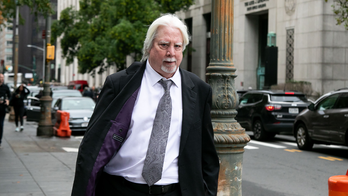
It's a good week for Congress to have freshman orientation because so many of the mistakes of the past are on display during the lame duck session.
Washington this week is like a haunted house at a Baptist Church - everywhere you turn, you see the grisly wages of sin.
There are, literally, busloads of new House members - more than 80 Republicans and nine Democrats. And on the Senate side there are 15 new members, not that they would be caught dead taking a bus anywhere.
It is the largest Republican freshman class since at least 1920 and quite possibly has less political experience per capita than any freshman class before - almost half have never served in any elective office before.
And this week, they all come to town to learn about how to press the green button or the red button to vote, how to avoid breaking ethics rules and where the members' washrooms are.
They also are getting courted by returning members looking to build coalitions and alternately praised and menaced by Tea Party and conservative groups, which are piling up litmus tests like a high school chemistry lab.
But while they're here, the business of Congress will probably provide the very best instruction.
Look over there, gang. It's Rep. Charlie Rangel's ethics trial, starting today. The New York Democrat isn't charged with any big crimes, just an accretion of smaller charges - income understatements, using his office to solicit funds for a project being named in his honor, etc.
Now Rangel, who was thought untouchable in his Harlem district and on his check-writing Ways and Means Committee perch, is a pariah in his caucus and now, as the New York Post reports, accused of raiding his own political action committee to pay for his legal defense.
The lesson: No one is untouchable.
And here, folks, is the leadership battle in the Democratic Caucus and the sound you hear are the muffled sobs of Democratic strategists.
Many Democrats blame Speaker Nancy Pelosi for the size of the Republican freshman class. But many of those Democrats who might complain about Pelosi's leadership don't get to vote because they are moderate members from swing districts who lost because voters in their districts were angry at Democrats in general.
In the concentrated liberalism of the new House Democratic caucus, Speaker Pelosi should have no trouble becoming Minority Leader Pelosi. Liberals are glad she was so bold in the current Congress, even if it made the Blue Dogs an endangered species.
One possible obstacle was anger in the Congressional Black Caucus and other minority interest blocs that the election of Pelosi and her lieutenant, Steny Hoyer would leave no room for CBC dean Rep. Jim Clyburn. But Clyburn and his caucus seem to have been placated with the creation of a new position - he would be below Hoyer in rank but report directly to Pelosi. It's a demotion from minority whip to Pelosi's "assistant leader," but Clyburn looked unlikely to beat Hoyer in a head-to-head fight.
Now, all that remains is for Pelosi to dispatch the quixotic challenge from conservative Democrat Rep. Heath Shuler (D-NC). Shuler has a better chance of returning to the NFL as a quarterback, but this is more likely a symbolic act to show the voters in his district that he really, really disagrees with Pelosi.
No one ever doubted that Pelosi could win minority leader, but Democratic strategists all over the country were hoping that she would go quietly. She is arguably the most disliked politician active today and her continued high profile can do no good for a party trying to re-brand itself as a centrist force.
The lesson: When your leader asks you to change your vote to "take one for the team" ask him or her if they would do the same.
And there, freshmen, witness the clerks' furrowed bows and cluttered desks.
The first problem is that the government is running out of money and Congress has to pass a continuing resolution to keep the red ink pumping after Dec. 3. Democrats opted not to try to pass a budget at all, but instead have been relying on patches to keep going.
The patches have worn out and now the lame duckers have to extend them again.
One of the reason Democrats waited so long to extend spending was that the bills had gotten complicated by other issues - like the bill to fund the military became encumbered by a move to allow gay members of the military to openly express their sexualities and a plan to allow amnesty for some illegal immigrants.
With the clock running out, it seems less likely that Democrats will insist on these controversial measures, especially with the aforementioned busloads of Republicans waiting outside.
But the big looming dread is that on December 31, the current tax rates for all Americans are set to expire, and without action, rates would skyrocket. Congress was supposed to address the subject months ago, but flinched in the face of looming elections.
President Obama and Speaker Pelosi wanted to send rates up for the wealthy, but the then-numerous moderates refused to back any tax increases at all. Rather than compromise, Democratic leaders dug in and demanded a tax hike or nothing and Republicans said they would have the same rates for all, or else.
Now it seems that Obama will bow to the pre-election reality that any tax increase is a political impossibility. It's a small concession on his part, since his plan had been inoperable for some time.
All of this work is piled up because Democrats opted to eat dessert first. They pushed the president's national health care plan for months and left little time for the actual work of appropriating and overseeing.
The lesson: A term in Congress is shorter than you think.
And finally, one lesson that might have saved untold careers (and marriages) in Congress over the generations: Only drink the whiskey you buy for yourself.
MORE OBAMACARE WAIVERS ISSUED?
As first reported by FOX Business, the Obama administration has now granted waivers to the president's national health insurance law to 111 employers and unions.
The one-year exemptions from the law's requirements for the size and scope of insurance employers must provide now extends to 1.2 million workers.
Companies apply for waivers on the grounds that the new federal regulations would force them to drop existing plans or dramatically increase premiums. The decision whether or not to grant the potentially valuable deferments rests with Health and Human Services Secretary Kathleen Sebelius.




